Food Garden - Update: Part 01
It’s been quite some time since my first blog post about my food garden, so I thought I’d put up an update post to show what’s new and how things have changed since that blog post. Way too much is going on to try to fit everything into one post, so I’m going to break it up into a few posts.
Fruiting trees and plants
Avocado
I had just planted avocado trees in the middle of my three largest raised veggie garden beds after my last post. The main reasoning for this is that avocado trees require very good drainage and regular water. Having just installed my irrigation system, this seemed like a logical place to put the trees, with veggies planted around on the outer edges of the beds.
Last season, the trees flowered beautifully, and while I thought I was going to get a great crop of avocados, all of the immature fruit dropped off the Hass, Shephard and Fuerte.
That was the first season the trees could have potentially borne fruit, so it’s not entirely surprising that they dropped their fruit before it could ripen.
The trees seem very happy and are growing rapidly, so I was expecting them to do better this season, and I resigned myself to that fact that I would need to wait another year minimum before trying an avocado from my garden. However…
Joy! Excitement! Happiness! I found an avocado on the smallest of my avocado trees, which is planted in a bed in the front yard. This is the Pinkerton avocado. This variety doesn’t mind being a under-story tree, and there are larger trees shadowing it, which is probably why it hasn’t grown as fast as the others, which are in full sun. This one has been in the ground a full year longer than the other trees. I’ve been trying to train the tree to grow more upright and went to adjust the ties around the tree when I saw at the back of the tree, well hidden behind some leaves, a good-sized avocado. It did get a bit chewed by a rabbit (I think), when it was quite small, so it grew with some distinctive scars around the skin, but it turned into a very good sized, tasty avocado.
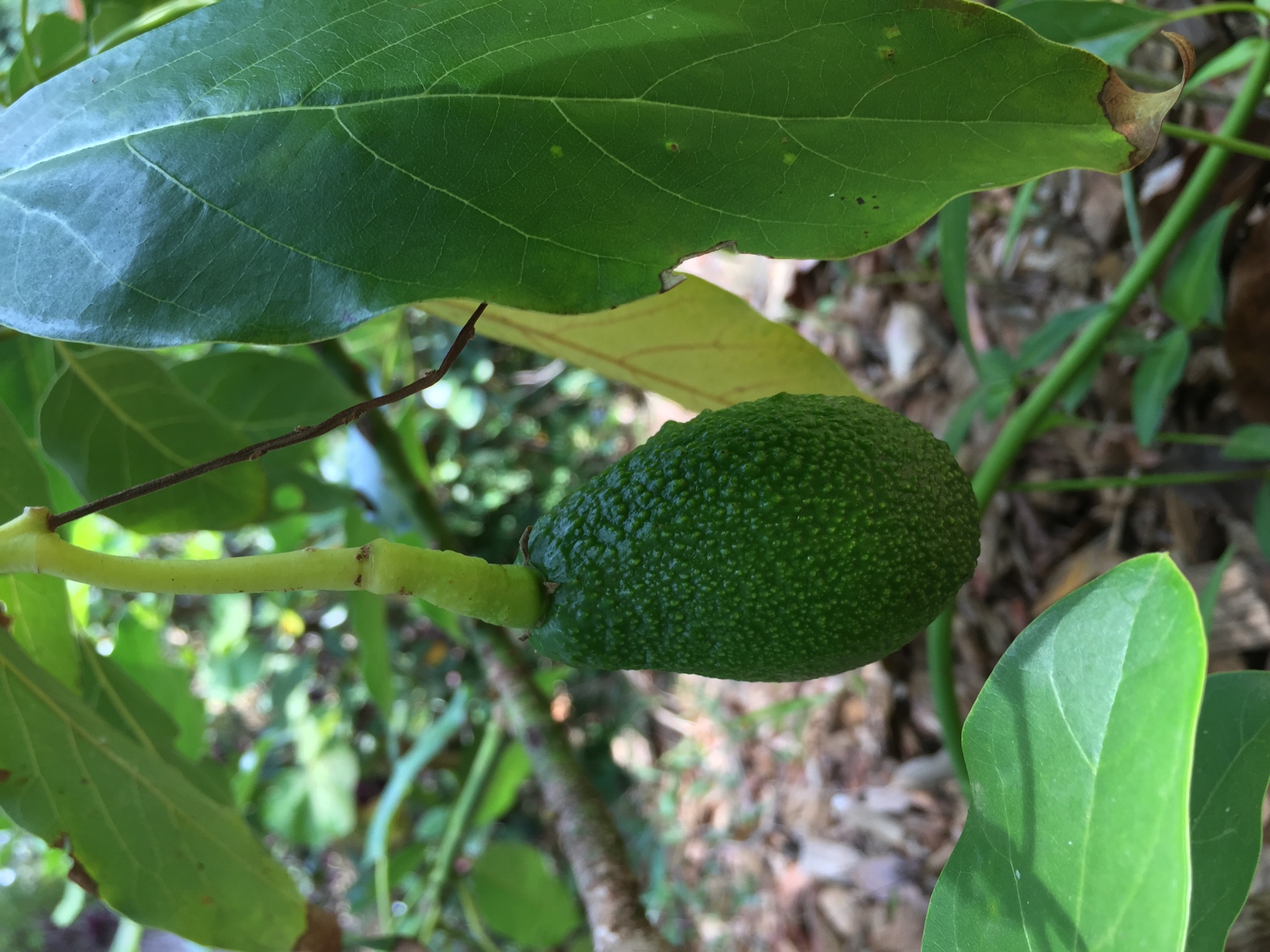 |
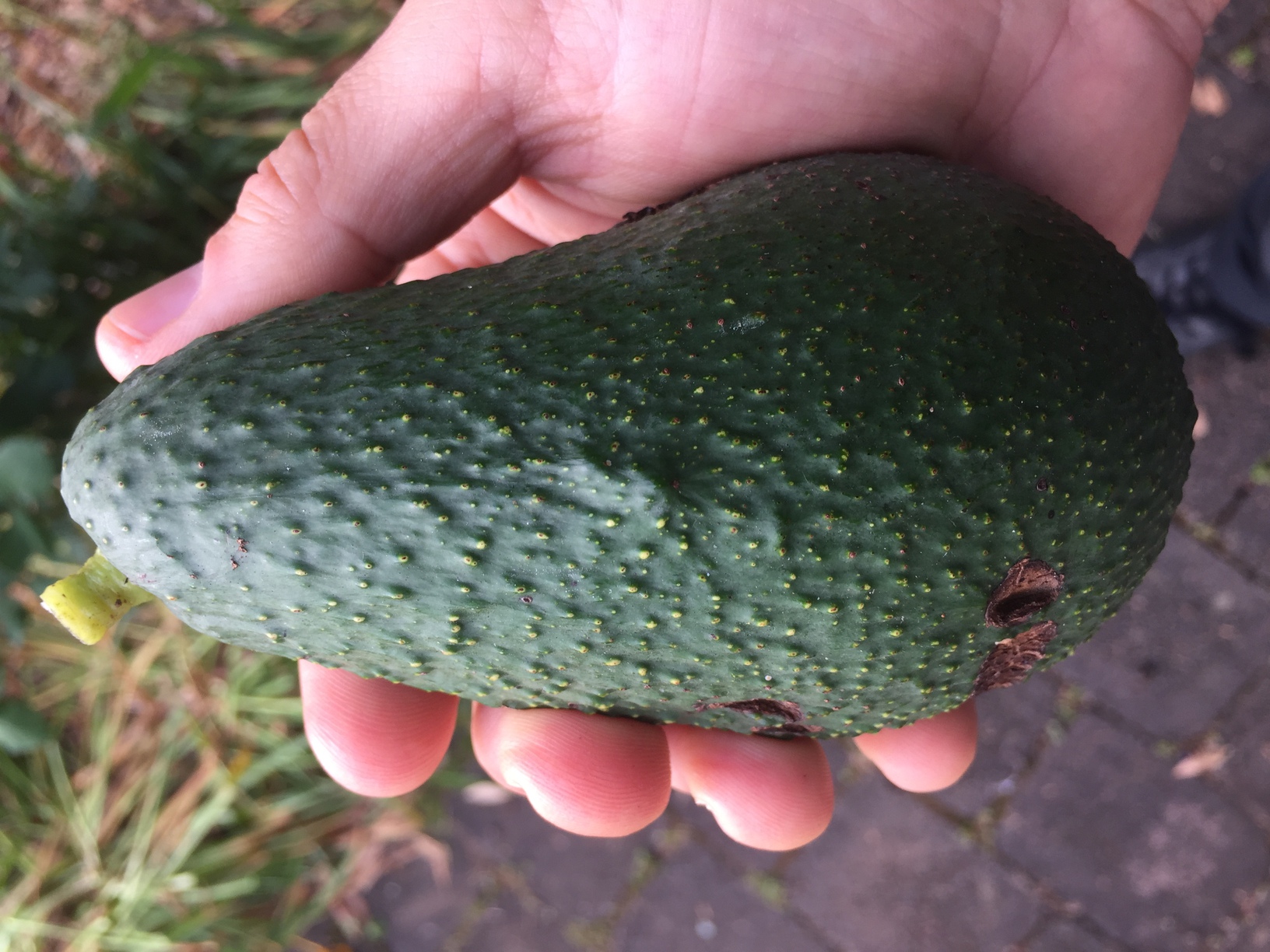 |
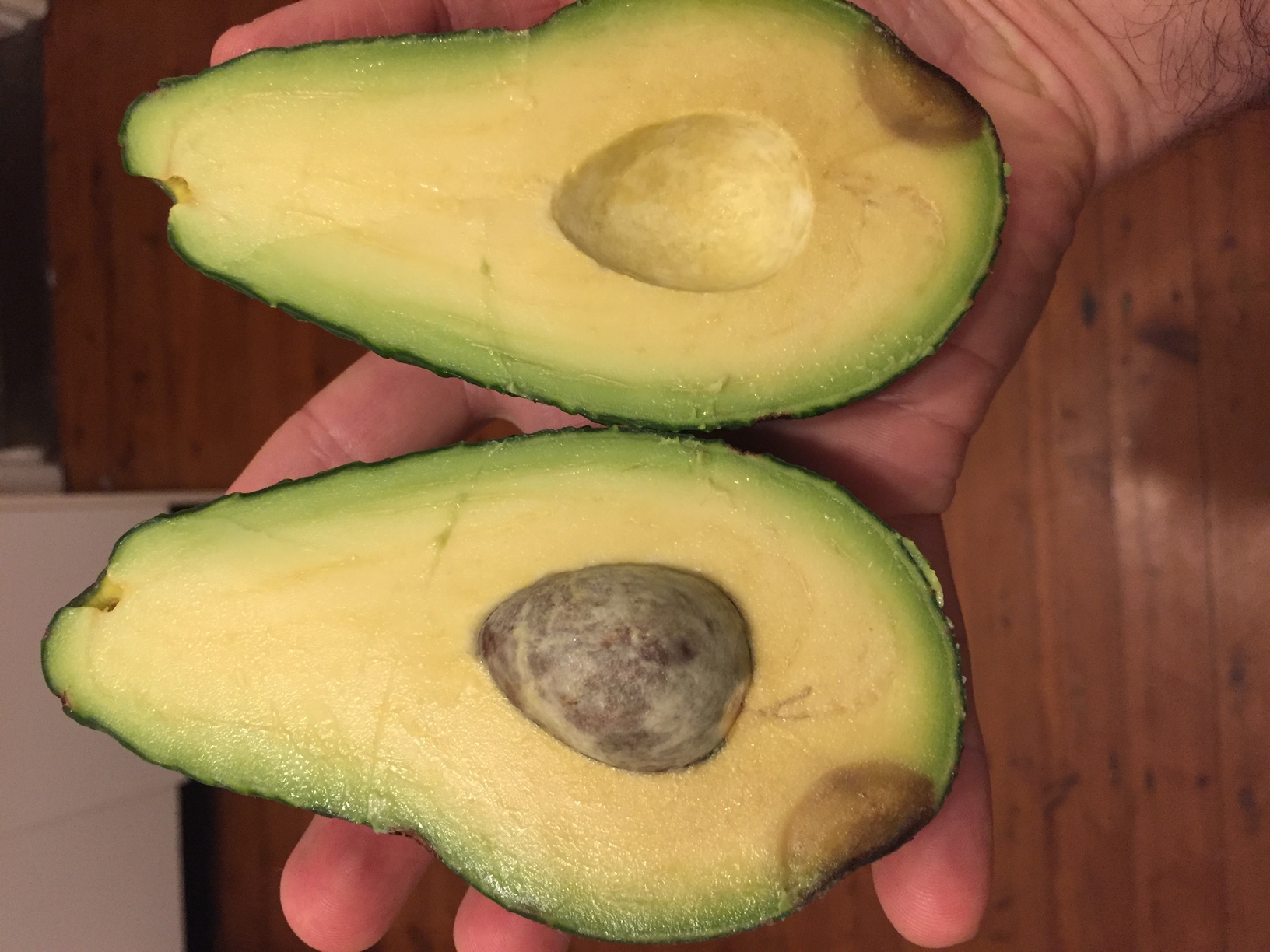 |
This year looks very exciting though! The Hass has gone crazy and looks like it will bear a great crop, the Fuerte seems to have a good number of avocadoes set, and the Sheppard looks like it will get a modest crop. The Pinkerton might get one or two this year as well.
Here is a visual timeline of the trees from when they were planted, and then when they are in flower (around September) each year after that:
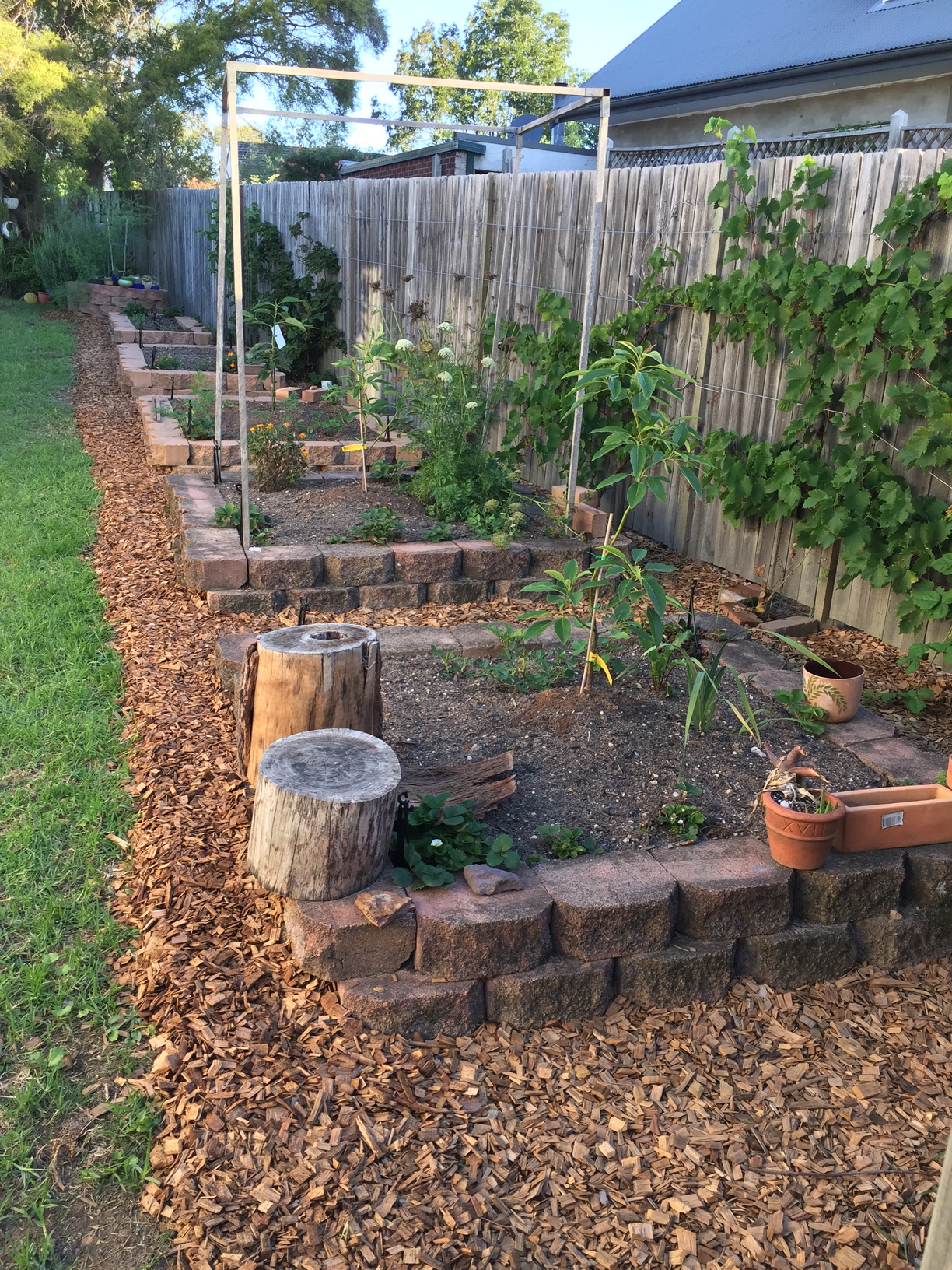 |
 |
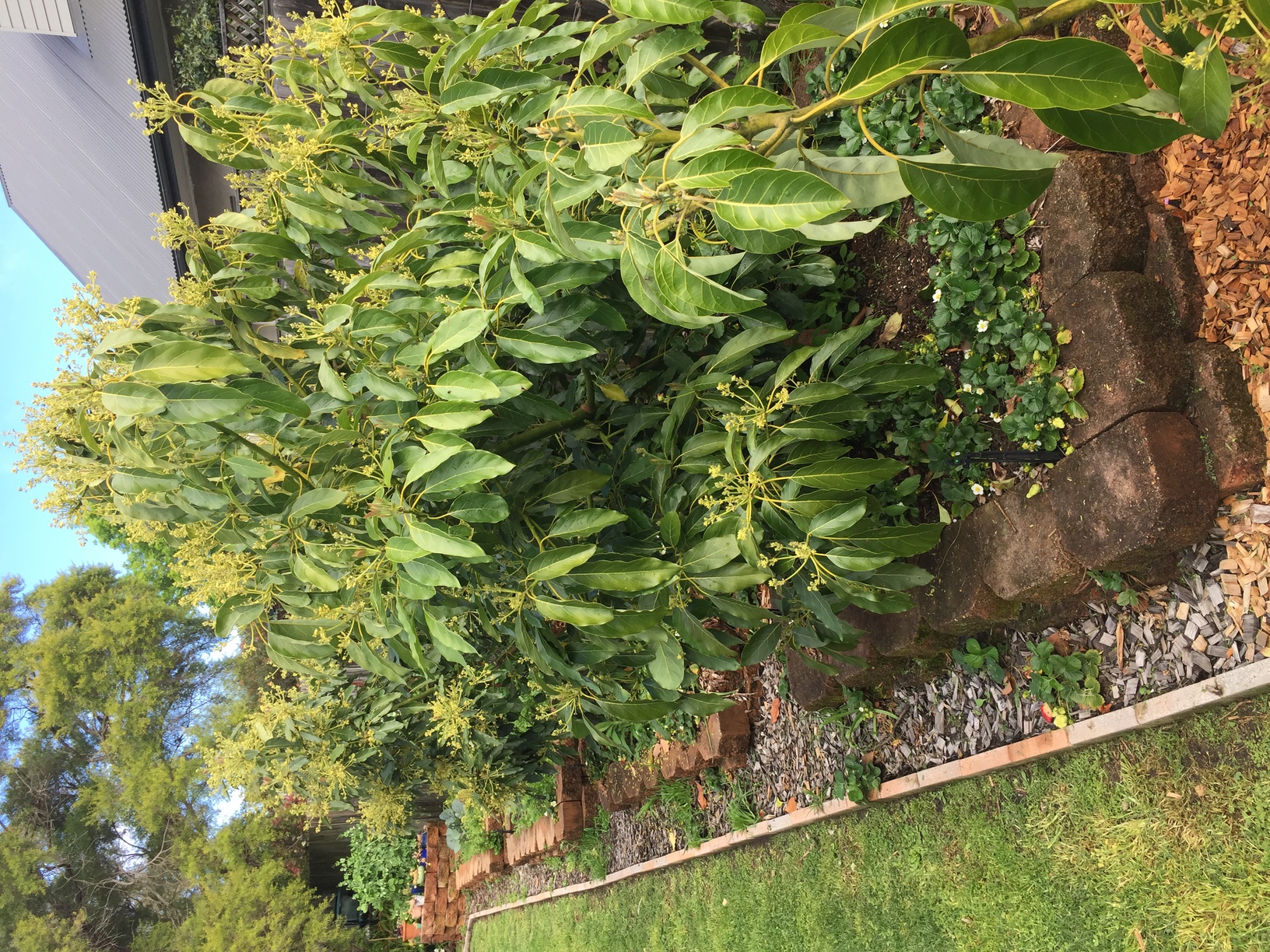 |
Macadamia
The macadamia tree that my parents bought as a house-warming gift seems to have gone… nuts this year and last. It had so many flowers and has held onto so many of the nuts that formed. I have a second macadamia which is a much bigger tree but hasn’t set anywhere near as many nuts. That said, it’s set the most nuts this season that it has yet, so with the harvest from the two trees, we should get a good number of nuts when they ripen. I believe I might be getting a bench-mounted macadamia cracker for Christmas this year… ;)
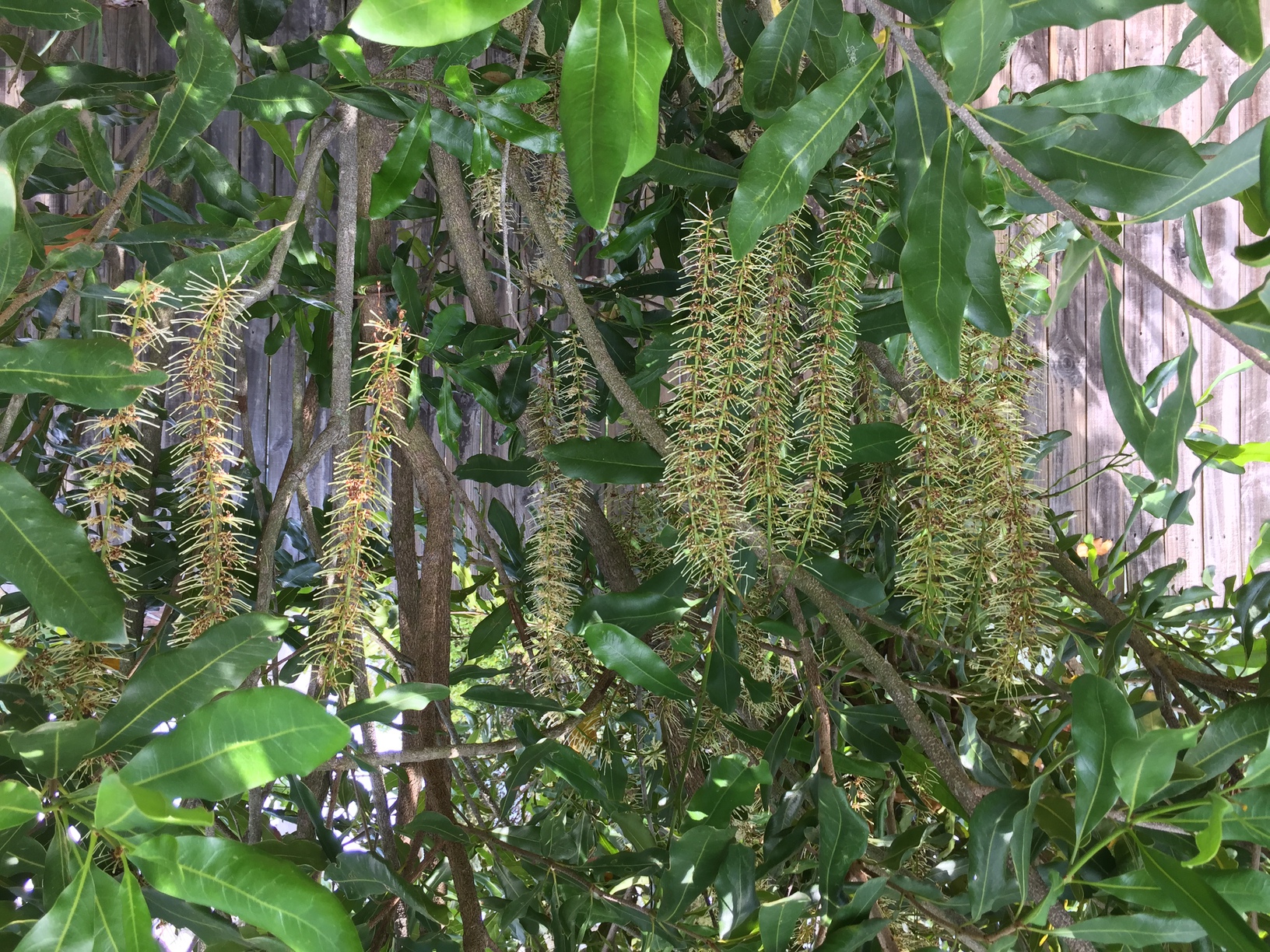 |
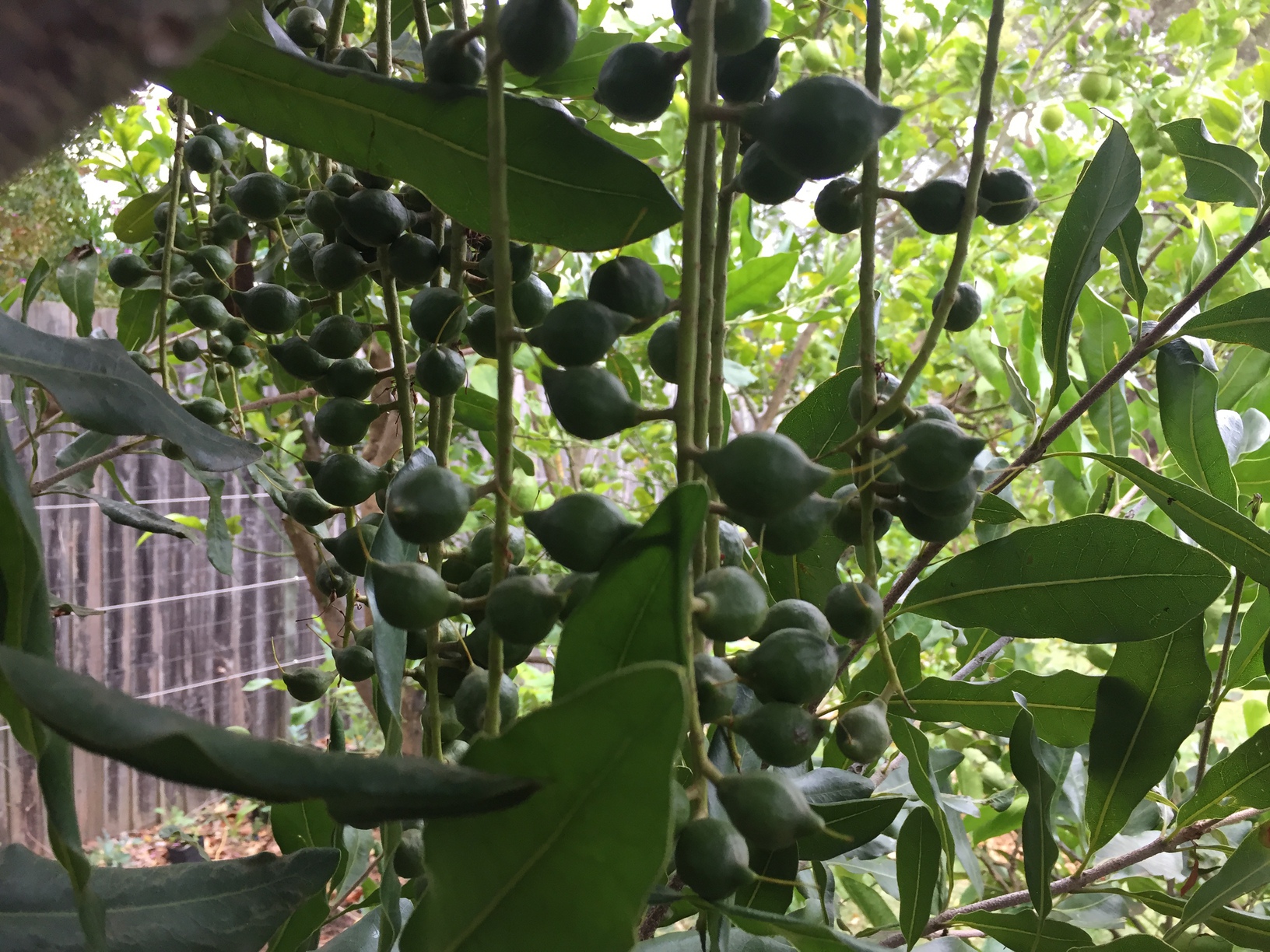 |
Mango
Mangoes are one of my favourite fruits, so I have three mango trees in the ground, two Bowen/Kensington Pride, and one Nam-Doc-Mai mango (a Thai variety that is supposed to be very good eating). Last season I got my first fruit from one of the KP mangoes. Actually, I have three mango trees in the ground that I bought. I have another two in the ground that I grew from seed. I particularly liked the flavour of the Honey Gold mangoes we got at the shops a few years ago, so planted a couple of the seeds in pots and they grew quite well. I have planted those two in the ground, and we’ll see what happens. So, I lie. I have five mango trees. :)
We ended up with a lot of rain when the mango was ripening, so the skin split and was attacked by fruit fly. I had to cut out a big chunk of the mango, and what was left didn’t get a chance to ripen completely. Overall, a bit of a disappointing first mango, but better luck this year.
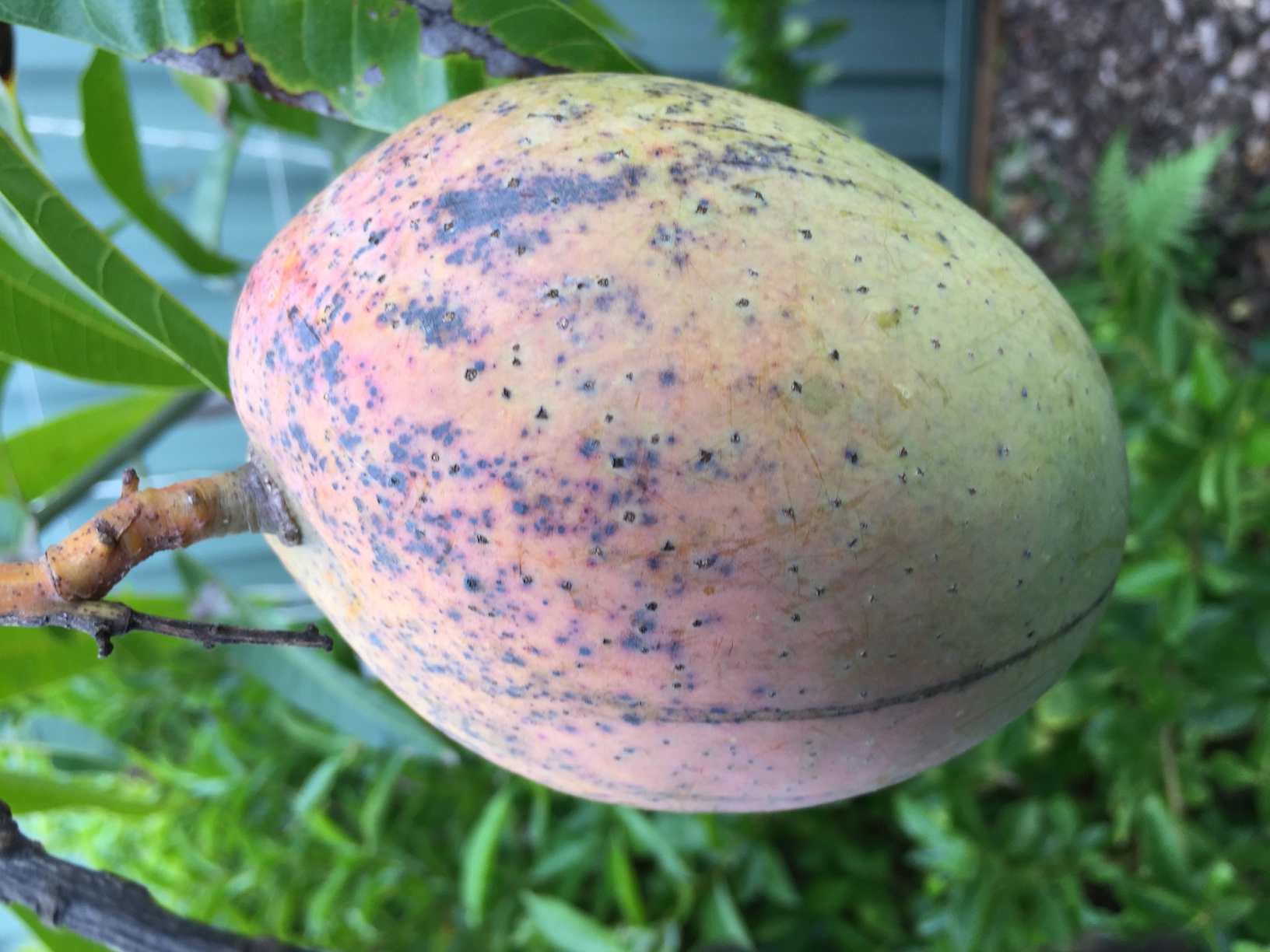 |
Guava
We got a lot of nice guavas last season but struggled with fruit fly. Many of the fruits were unusable and the ones that were usable needed a lot to be cut out of them. I will go hard with the fruit-fly traps this season to try to prevent this happening again.
I ended up making guava puree out of the fruit we harvested, and from that, made a guava juice (guava puree mixed with some apple juice), guava ice-cream (guava puree, lime, condensed milk, churn in an ice-cream maker), and I also froze some of the guava puree which we had in breakfast smoothie bowls - essentially frozen fruit blended up with some oats and almond meal, topped with granola.
I have setup a fruit fly trap in the lemon tree right next to the guava tree, and in the guava tree itself, so I’m hoping this will limit fruit fly damage when the guava fruit sets. It’s forming flower buds now, but none of them have opened just yet.
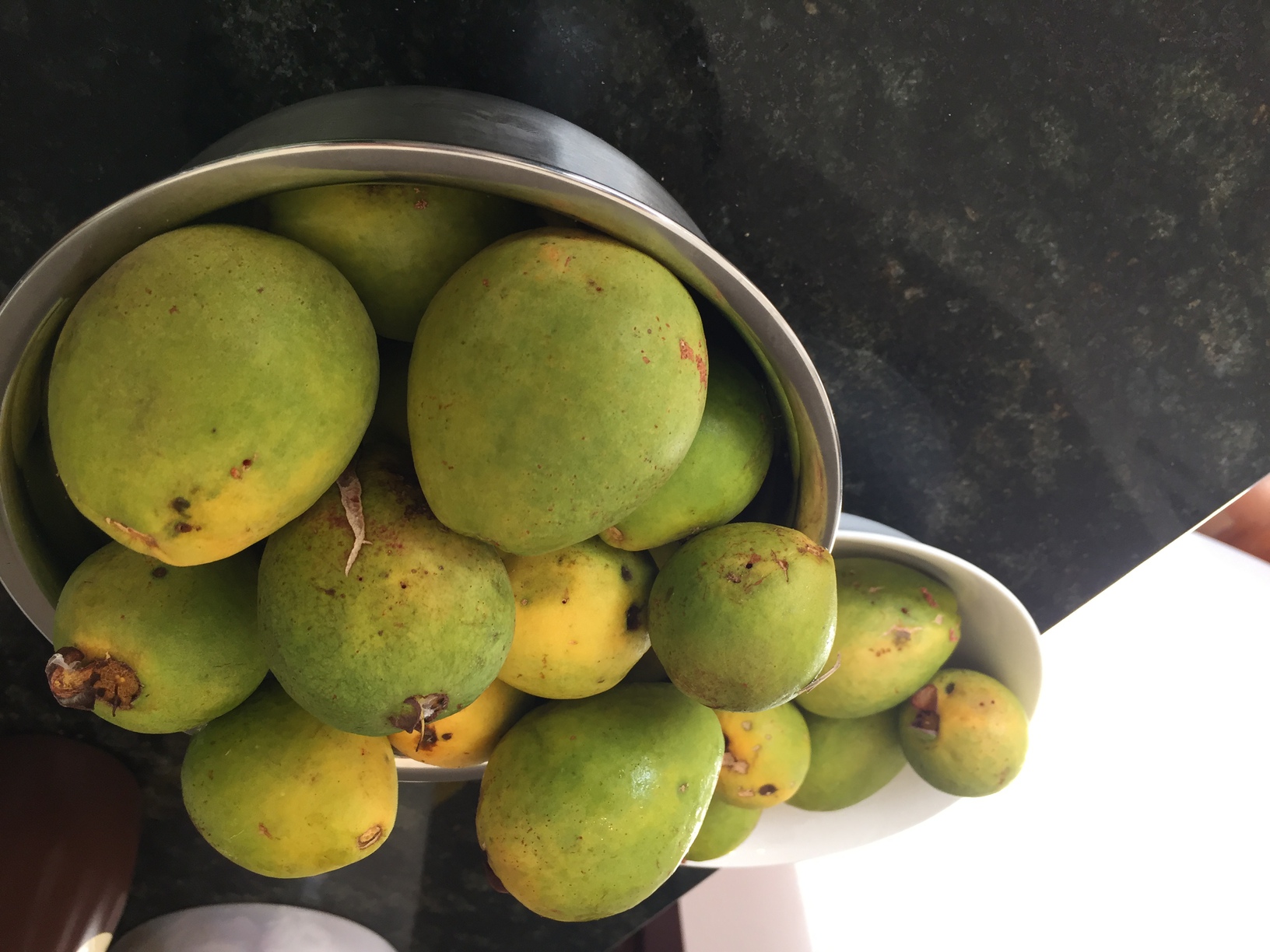 |
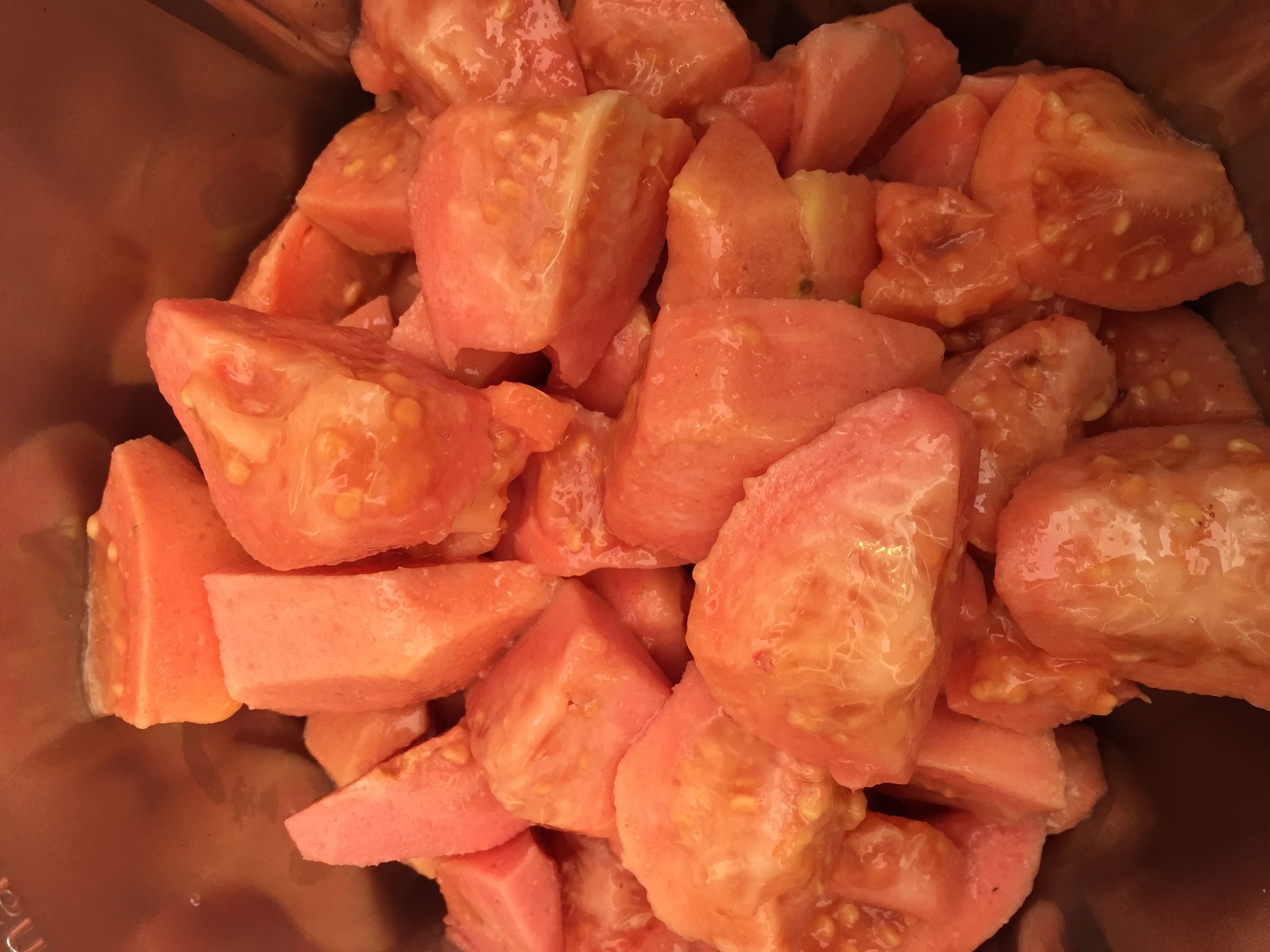 |
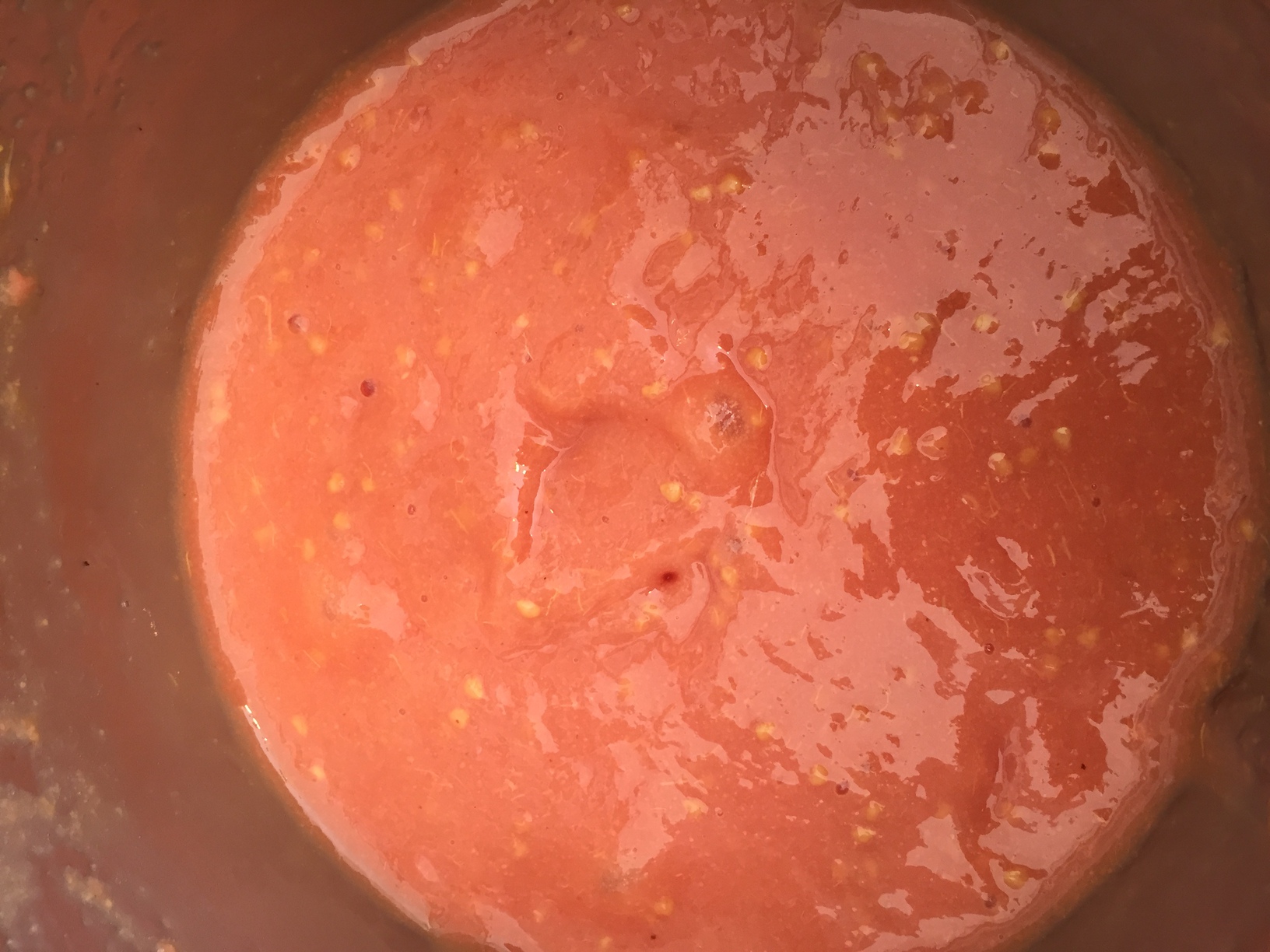 |
More to come in “Food Garden - Update: Part 02”